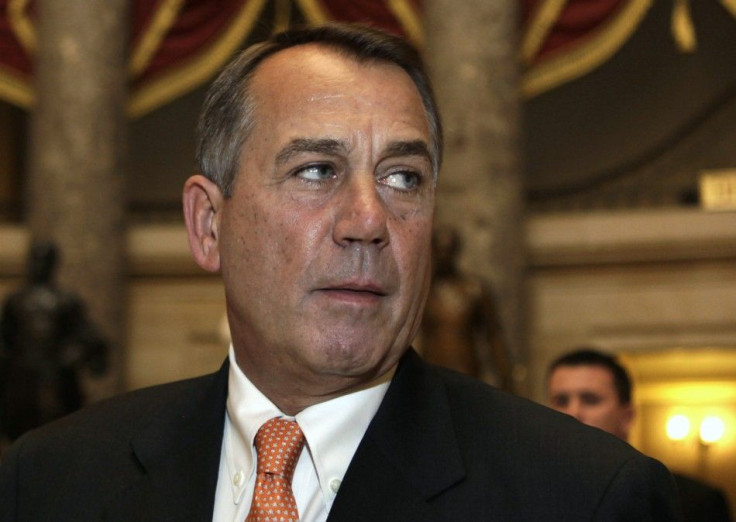Republicans Back Down - Congress Passes Stop-Gap Payroll Tax Cut Measure

Congress approved a two-month extension of the payroll tax cut and unemployment benefits, after a prolonged partisan battle on Capitol Hill. The stop-gap measure buys Congress and the White House more time to negotiate a longer-term extension.
Both houses of Congress passed the measure in a hurried voice vote, with no debate. The votes echoed through mostly empty chambers, as most lawmakers had cleared out for the holidays.
The $33 billion measure keeps the payroll tax rate at 4.2 percent, extends unemployment benefits set to expire and keeps cuts in Medicare payments to doctors at bay. Its passage allows lawmakers to clear out of Capitol Hill for the holiday season and revisit the issue in January.
The measure passed by an 89-10 vote on Saturday, and appeared cruising towards a floor vote in the House, with House Speaker John Boehner, R-Ohio, expressing support for the bill. Its prospects became dicey when reports stated the Tea Party faction of the Republican caucus vocally opposed the deal, claiming the Senate chose to kick the can down the road for two months
Republican members of the House initially balked at the Senate-approved measure, despite early indications from Boehner that it would not be blocked. A standoff ensued, with the House demanding a conference committee be convened so a middle ground could be reached. Senate Majority leader Harry Reid, D-Nev., and Obama both expressed disdain for the offer, with the President telling Boehner the two-month extension was his only option.
Well, it's pretty clear that I and our members oppose the Senate bill, Boehner said on NBC's Meet the Press on Sunday after the Senate bill's passage. It's only for two months. You know, the president said we shouldn't go on vacation until we get our work done. And frankly, House Republicans agree.
The capitulation on the part of Republicans in the House of Representatives, after refusing to pass a bill approved by the Senate on Saturday, has been marked as victory for President Barack Obama. The White House refused to back Boehner's call for the Senate's return so a one-year deal could be ironed out. Boehner refused to laud the vote.
I don't think it's a time for celebration, he said on Thursday, as word got out that an agreement had been reached. Our economy is struggling. We've got a lot of work ahead of us in the coming year.
The bill was laced with GOP-friendly riders, including an expedited decision on the controversial Keystone XL pipeline, which the Obama administration had originally shelved. The project has been depicted as a job creator by GOP lawmakers, but faces heavy opposition from environmentalists. Still, the move was apparently not enough to entice Republican representatives.
If the tax cut expired, the tax would have reverted to its original 6.2 percent rate, hitting many about 160 million Americans in the paycheck at a time when many economists believe leaving money in their wallets can only help the economy.
According to reports, Republican lawmakers who initially doubted the bill's ability to help the economy were particularly opposed to its swiping of $120 billion from the Social Security Trust Fund. GOP representatives wanted the lost revenue to be covered by spending reductions, while Democrats have pushed tax increases on the wealthy.
The latest Republican intransigence may also have been fueled by the prospect of having to vote against a tax cut during an election year. Many in the GOP have expressed doubt over the cut's ability to effectively fix the economy, whatever scant help it provides. Facing a potential vote on the unpopular cut in the throes of an election year would not bode well for naysayers.
But the day's vote calls into question Boehner's resiliency going into an election year. First, Senate Minority Leader Mitch McConnell led members of his caucus in joining Democrats in supporting the Senate version of the extension. The Speaker's initial support of the bill was flipped when the GOP's Tea Partiers vocally opposed his plan to move ahead with the deal. Boehner's embattled state does not appear to call into question his continued role as Speaker of the House, but a perception of diminished authority could hurt in an upcoming election year.
© Copyright IBTimes 2024. All rights reserved.





















